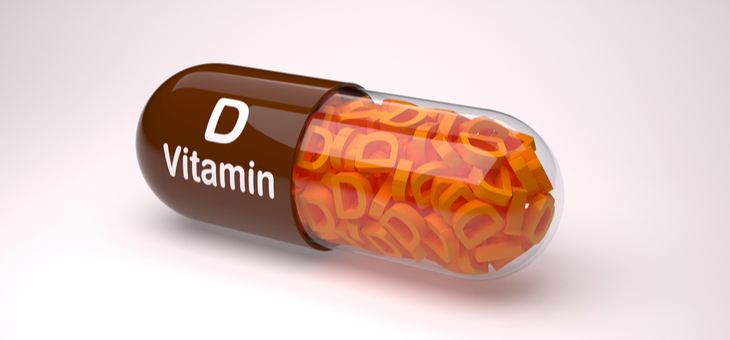Vitamin D is essential for healthy bones but it also plays many other important roles in the body. In Australia, vitamin D deficiency is common, with more than 30 per cent of adults having a mild, moderate or severe deficiency.
So, who is at risk of a vitamin D deficiency and how can you ensure you’re getting enough?
Why it’s important
Vitamin D holds an important function in the body because it helps with calcium absorption, cell growth and maintaining a strong immune system to fight disease and illness.
Technically, vitamin D helps to increase the absorption of calcium from the stomach, regulates calcium levels in the blood and works to strengthen the skeleton.
A vitamin D deficiency can lead to problems with the musculoskeletal structure, including bone and joint weakening and pain, and fractures and breaks in older people. Extreme deficiency cases can result in rickets. Babies born of vitamin D deficient mothers are likely to have lower birth weight, while unborn babies of mothers who are vitamin D deficient during the first trimester are twice as likely to have growth restrictions in utero.
Where it comes from
Exposure of the skin to sunlight is the main source of vitamin D. But it’s also found in small amounts in some foods. The liver and kidneys, which turn vitamin D into a hormone, play an essential role here.
A few foods that naturally contain vitamin D include:
- fatty fish (e.g. salmon, tuna, mackerel)
- beef liver, cheese and egg yolks
- mushrooms.
Some foods are fortified with vitamin D. These include:
- milk
- breakfast cereals
- some orange juices, yoghurts and soy drinks.
According to Osteoporosis Australia, food alone cannot provide an adequate amount of vitamin D. Daily exposure to sun is very important – about 10 to 15 minutes daily is advisable.
Many people with varying degrees of low level vitamin D take supplements. These are available as tablets, capsules, drops or liquid. Your GP or pharmacist can advise you on the right supplement for you.
Who needs it?
Everyone – from young children to older adults – needs to maintain good levels of vitamin D. For those with low levels of vitamin D or who are at risk of bone problems (e.g. osteoarthritis and osteoporosis), this nutrient is most essential.
People should pay attention to their vitamin D intake if they:
- are over 50
- get very little sun
- are women (all ages)
- have a disposition for osteoarthritis, depression, heart disease and cancers
- have a darker skin tone
- have lactose intolerance
- have kidney disease (or conditions that affect how the body absorbs minerals)
- are vegan
- are infants who consume only breast milk.
Vitamin D deficiency is also common in people who live in parts of the world where there are fewer days of sunlight.
How much do you need?
Osteoporosis Australia recommends the following international units (IU) doses of vitamin D:
People obtaining some sun exposure but not at recommended level:
- under 70 years – at least 600 IU per day
- over 70 years – at least 800 IU per day.
Sun avoiders or people at risk of vitamin D deficiency:
- 1000 IU to 2000 IU per day (higher doses may be required).
People with moderate to severe vitamin D deficiency:
- 3000 to 5000 IU per day for six to 12 weeks to raise the level of vitamin D quickly, followed by a maintenance dose of 1000 to 2000 IU per day. As advised by a doctor.
Note: It may take three to five months for vitamin D levels to fully improve, so it is important to take supplements as advised.
Find out more at Osteoporosis Australia and Jean Hailes.
Do you have regular blood tests to check for any health issues? Do you try to juggle sun exposure to get enough vitamin D?
Related articles:
Five foods for your bones
Healthy bones for life
How well do you know your bones?
Disclaimer: This article contains general information about health issues and is not advice. For health advice, consult your medical practitioner.

